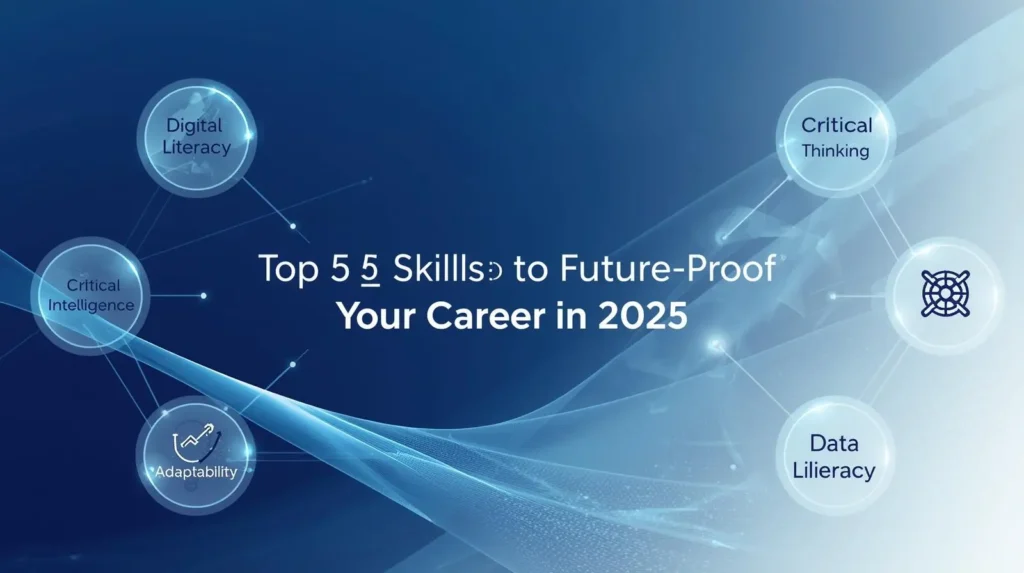The world of work is evolving at a pace we’ve never seen before. Technologies like artificial intelligence, automation, and advanced analytics are reshaping industries, and with them, the demand for specific skills. To stay competitive and relevant in 2025, professionals need to focus on developing future-proof abilities that cannot easily be replaced by machines.

Table of Contents
If you want to build a career that thrives in the years ahead, here are the top five skills you should prioritize:
1. Digital Literacy and Tech Savviness
Technology now underpins every profession. Beyond basic computer use, digital literacy means understanding and adapting to tools such as cloud systems, AI-powered platforms, cybersecurity practices, and data-driven applications.
In 2025, companies expect employees to confidently navigate digital environments, learn new tools quickly, and stay updated with evolving technologies. Whether you are a marketer using AI for customer insights or a doctor leveraging digital health platforms, tech savviness will be a core requirement.
2. Critical Thinking and Problem-Solving
While automation handles routine tasks, complex challenges still need human insight. Critical thinking allows professionals to evaluate information, analyze risks, and create innovative solutions.
Employers value individuals who can ask the right questions, make informed decisions, and adapt strategies in uncertain environments. Problem-solving skills are what make professionals stand out in industries facing constant disruption.
3. Emotional Intelligence (EQ)
AI may process data better than humans, but it cannot replicate empathy, leadership, or emotional understanding. Emotional intelligence—the ability to understand and manage emotions in yourself and others—is becoming a cornerstone skill in modern workplaces.
High EQ improves communication, teamwork, and conflict resolution. As remote and hybrid work remain common in 2025, professionals with strong emotional intelligence will play a vital role in building trust and collaboration across teams.
4. Adaptability and Continuous Learning
The shelf life of skills is shrinking. What you learned five years ago might already be outdated today. That’s why adaptability and lifelong learning are critical.
Professionals who are flexible and open to acquiring new skills will remain in demand. Online courses, micro-certifications, and skill-based training are widely accessible, making it easier than ever to stay current. The willingness to evolve with industry trends shows employers that you are ready for the future.
5. Data Literacy
Data is now at the heart of business decision-making. From finance and healthcare to logistics and marketing, data-driven insights fuel growth and innovation. While you don’t need to be a data scientist, having data literacy—the ability to interpret, analyze, and apply data—can give you a major advantage.
For instance, understanding how customer data influences buying behavior or how performance metrics can optimize operations helps professionals contribute more meaningfully to their organizations.
Final Thoughts
The careers of tomorrow will reward professionals who blend technical expertise with human skills. Digital literacy, critical thinking, emotional intelligence, adaptability, and data literacy will be the defining qualities of successful employees in 2025 and beyond.
Future-proofing your career is not just about learning new tools—it’s about staying curious, flexible, and prepared for change. If you focus on these skills today, you’ll not only survive the job market of tomorrow but thrive in it.


